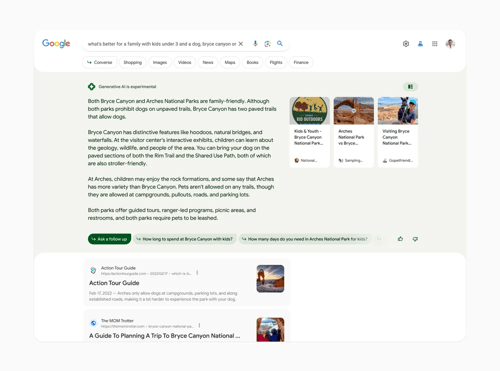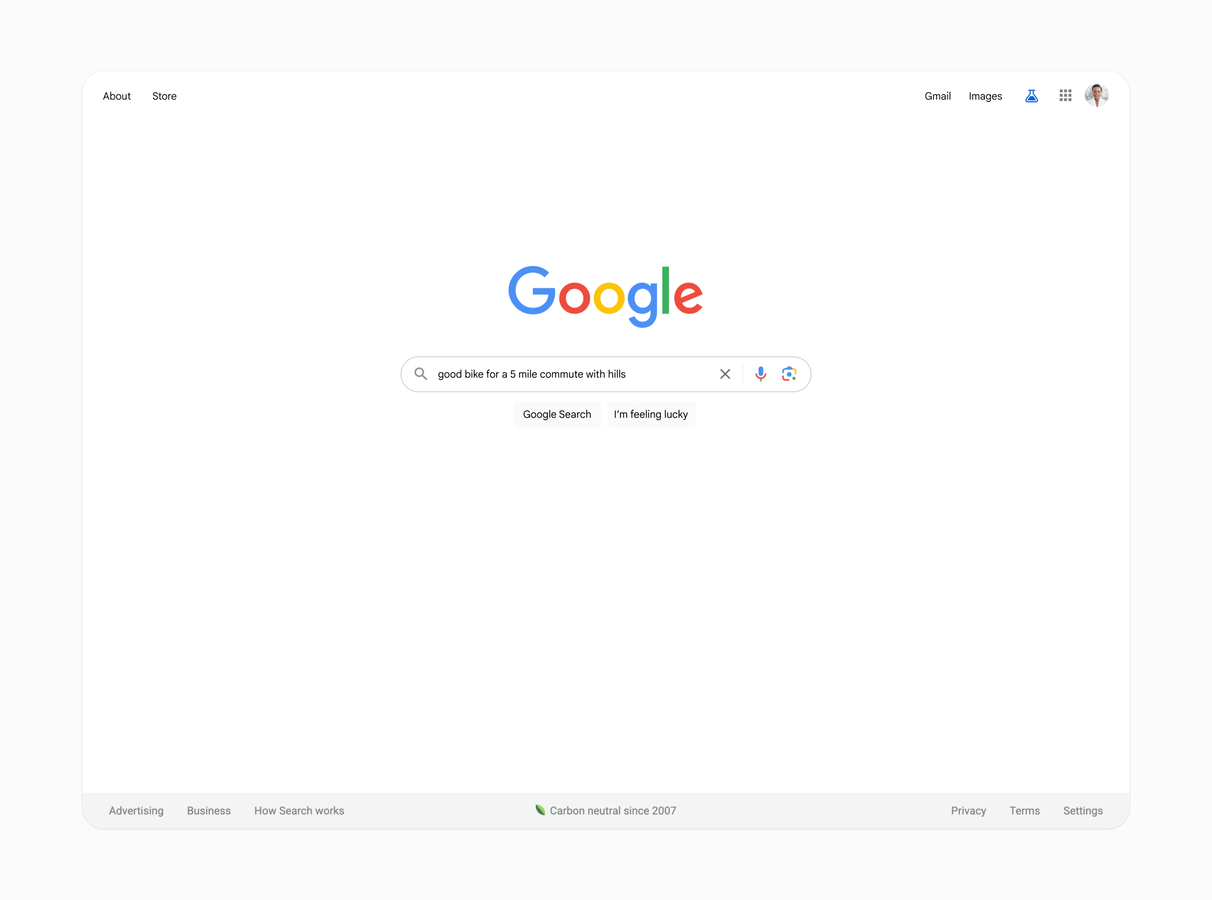The digital marketing world is on the brink of another major shift with the introduction of Google’s Search Generative Experience (SGE). This innovative AI-driven feature promises to redefine SEO and PPC advertising, offering both new opportunities and challenges for marketers.
 While details about Google’s SGE are still emerging, we’re here to break down what SGE is, its potential impact on search and digital marketing strategies, and what it means for your business in 2024 and beyond.
While details about Google’s SGE are still emerging, we’re here to break down what SGE is, its potential impact on search and digital marketing strategies, and what it means for your business in 2024 and beyond.
SGE: What is it?
Search Generative Experience, or SGE, marks a significant departure from traditional search engine operations. Instead of the familiar list of links, SGE aims to provide interactive and user-centric search results. This means delivering immediate answers within the search results page itself, reducing the need for users to click through to websites.
With SGE, search results will be more interactive and focused on the user, not on the SERP. SGE will offer immediate responses and information within the search results themselves, removing the need for consumers to click on links to find what they’re looking for. This is an alternative to merely depending on click-throughs to websites.
For example, an SGE search query like “What’s the best national park for a family with young kids and a dog?” would directly display comprehensive, interactive answers, allowing users to refine their search or get more information without leaving the search page.

The Impact on Website Traffic & Engagement
This shift towards providing answers directly on the search results page could significantly affect website traffic and user engagement. Traditional SEO and PPC strategies may need to evolve as the way users interact with search results changes since, regardless of the search query, the user is going to see answers and prompts where they can continue to click through and refine their query or get more information – without ever leaving the search result or landing on a website page.
Here’s another example of an SGE search for purchasing a new bike:

Early Adoption & the Challenges of SGE
While the potential impact of SGE on search and digital marketing is enormous, it is important to acknowledge that widespread adoption may not happen overnight. Looking at past advancements like voice search and Google Assistant, we can draw valuable insights as they gained the attention of marketers but did not see immediate adoption among the general public. This highlights the need for patience and a cautious approach when it comes to SGE.
In addition to potential delays in user adoption, there are certain challenges associated with SGE, particularly in terms of the accuracy of its responses, especially for proximity-based searches. Furthermore, it appears that SGE may not cater to all types of queries, indicating a coexistence of conventional search experiences alongside SGE experiences, at least in the near future.
How SGE Will Influence Advertising Strategies
With SGE, the focus of advertising strategies is expected to shift. Advertisers need to be prepared for a significant shift in click-through rates (CTR), which will have an impact on their results. Google Ads representatives are already placing more emphasis on metrics such as cost per action (CPA) and return on ad spend (ROAS) rather than CTR. While this transition may not lead to major changes in actual performance metrics, it will undoubtedly influence advertising strategies.
Looking ahead, we anticipate a closer collaboration between PPC and SEO specialists. The evolving landscape of SGE will emphasize the importance of seamless coordination between these specialized marketing disciplines, all with the aim of delivering intent-rich experiences for users.
The Evolution of Keyword Research in the Age of SGE
In the SGE era, keyword research—a cornerstone of traditional SEO—may change. Targeting particular keywords or phrases may become less important than optimizing web pages for Google’s algorithms and user experience. Instead of placing a lot of emphasis on choosing the ideal keywords and match types, SEO experts may have to start placing more emphasis on building optimized websites and using conversion tracking.
It is anticipated that the total volume of searches will not change as SGE spreads. However, depending on user behavior and trends, search suggestions will likely change. The economic model may be impacted, and ad placements in upper-funnel content—such as display and video ads—may increase due to advertisers’ increased interest in these types of content.
Competitor Research and Acquiring New Skills
To stay competitive in an SGE-dominated digital marketing world, marketers need to broaden their skill sets. Skills in video production, copywriting, and developing comprehensive marketing strategies will become increasingly important. And standing out from the competition will be crucial in crowded marketplaces.
In Conclusion
Google’s Search Generative Experience is poised to revolutionize digital marketing. To thrive in this new era, marketers and businesses must adapt to the changing landscape, focusing on user intent, context, and AI-driven interactions.

Stay Connected